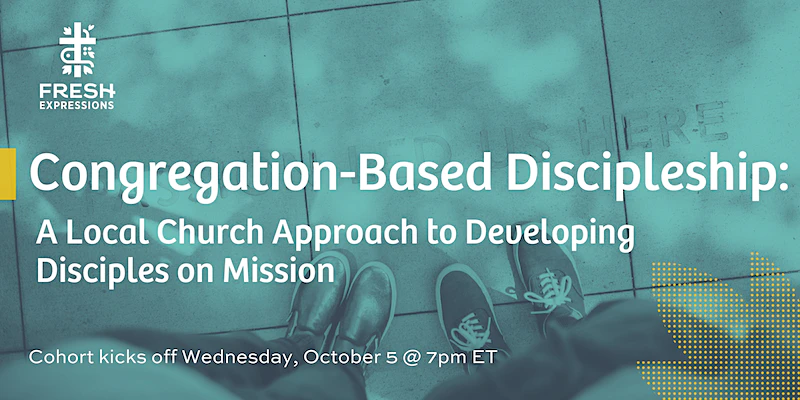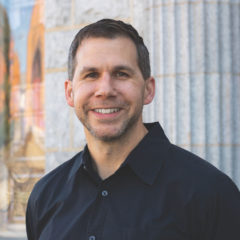My first clue that something was “off” when it came to the way we did discipleship in my local church setting occurred over six years ago now.
I had created what I had considered the most robust discipleship program our church had ever offered. We met for many Tuesday nights over the course of the Fall of that year to explore and encourage discipleship.
All went well until the last evening of the final session when one of our most mature, devoted disciples was walking out of that session and looked at me and asked, with all sincerity, a question that has haunted me ever since. He asked, “Is this all there is?’
After getting past my initial emotions of frustration, anger, and embarrassment, I eventually came to see that that individual was correct to ask that question. What he helped me to see that night was that what I had created was not a set of practices by which to form lifestyles of discipleship, but rather a program of information by which to raise up more devoted church volunteers.
When he asked me, “Is this all there is?” he was pulling back the curtain on our lack of discipleship formation. He had entered our discipleship program hoping to be challenged in the practices of Christ and how to follow Christ anywhere… but what he received was exactly what we had labeled it—a discipleship “program.”
Clues Reveal a Lack of Discipleship
More recently we have all seen many more “clues” when it comes to the lack of discipleship in our churches. The pandemic has revealed on a full-scale level the lack of depth of discipleship in the majority of our churches. Statistics abound on how many individuals are simply not returning to the church in any fashion in the wake of the pandemic. Now we are realizing, perhaps in a way not seen in decades, that most of our churches have been forming faithful volunteers rather than robust disciples of Jesus.
The pandemic has revealed on a full-scale level the lack of depth of discipleship in the majority of our churches.
Tweet this.
The curse of this reality is that we do not have nearly as many committed disciples of Jesus in our churches as we thought. We are realizing that our discipleship pathways (if we even have a pathway) are merely institutional offerings rather than life-shaping experiences of following in the steps of Christ.
But the blessing of the reality in which we find ourselves is that churches are again realizing the importance and formational significance found in authentic discipleship. I have heard more conversations, seen more article titles, and heard more speakers reference the topic of discipleship in the last few months than I have heard at any other time in my ministry career (which now spans multiple decades).
What we are discovering then is that right at the time when we are discovering discipleship is most needed in our churches, we are also discovering how poorly we have been doing it.
As churches, we know we need to quit making volunteers, and start making disciples, but we simply do not know how in the time in which we find ourselves. In light of more sexy topics such as pursuing the arts of dynamic leadership, powerful preaching, and captivating marketing, faithful discipleship has often taken a back seat in our modern age because it has not been viewed as being sexy enough.
And yet, while there is no one, proverbial, “silver bullet” to correct what ails today’s local churches, a proper discipleship orientation is about as close as one can discover to such a solution. Deep discipleship always leads to lives of faithfulness in Christ which in turn yield the fullness of the Kingdom of God.
Deep discipleship always leads to lives of faithfulness in Christ which in turn yield the fullness of the Kingdom of God.
Tweet this.
Most church leaders do not disagree with the sentiment that deeper discipleship is needed in their local congregations. The key question becomes how?

How Local Congregations Can Pursue Discipleship
What We Do Instead of Discipleship
We can begin to reclaim an orientation towards discipleship when we are clear that discipleship is, in fact, what we are seeking. The reality in many local congregations is that they are busy pursuing one or more of the following realities:
- A focus on quick information over patient formation. Authentic discipleship takes time. But we are often not willing to put in the time for formation in our culture of instant gratification.
- Forming volunteers rather than disciples. Many churches simply want to find warm bodies to carry out the work tasks needed inside the church facilities rather than empower disciples to be on mission outside of the church facilities.
- An absence of apostolic practices beyond the institutional church. Many churches foster a culture of Christian consumerism rather than empowering disciples to be in service to the wider world.
Once we have identified that we are serious about making disciples (rather than something else), we can begin to focus on what this looks like in our local setting in intentional ways. Given that most of our local settings have cultures that are not overly conducive to raising up disciples, we will need to approach discipleship form a variety of angles so that discipleship seeps into our collective conscience. Otherwise, we will only succeed in offering one more program. The goal with discipleship is not new programs, but new ways of life.
Approaches to Creating a Discipleship Culture
Some of the ways that discipleship cultures can begin to be formed in corporate congregational bodies involve embracing the following multi-layered approaches:
- Formal and Informal Discipleship Opportunities: Formal opportunities involve a heavy emphasis on things such as Bible studies, worship services, organized mission trips, etc. Informal opportunities involve sharing life together, fostering organic discussion, mentoring, etc.
- Macro and Micro Approaches: Macro approaches involve elements which can sensitize the heart of the entire congregations such as sermon series on discipleship, congregation-wide Bible studies, corporate pathways of discipleship. Micro approaches involve mentoring and looking for those individuals you believe God is moving in their hearts and inviting them to coffee or breakfast for conversation about taking a next step.
- A.P.E.S.T. (Apostles, Prophets, Evangelists, Shepherds, Teachers) Approaches: Based upon Ephesians 4:11-13, many churches do well when it comes to teaching and shepherding elements of discipleship. However, churches must once again focus on and empower individuals in apostolic, evangelistic, and prophetic elements of discipleship.
- Formational and Generative Approaches: Formational approaches (often offered in more formal settings) offer the necessary information about discipleship with a focus on correct belief and knowledge. Generative approaches (often offered in more informal settings) involve the implementation of practice where individuals practice what they believe.
In these ways, churches can once again raise up rugged disciples over consumeristic volunteers. As churches learn to dance in and among the approaches just listed, and in step with the Holy Spirit, discipleship can once again begin to take root in our corporate cultures.
Discipleship Begins with Intentionality
It all begins with a spirit of intentionality. As I have heard it said, “Nobody drifts into a committed, growing relationship with Christ. Nobody wakes up one day and says, ‘I’m not sure how it happened, but without really knowing it, I am a lot like Jesus in every area of my life (author anonymous).’”
But when we are intentional, as individuals and as corporate bodies, beautiful things begin to happen. As with any good dance, it takes time to learn the steps. It takes time to do naturally what must first be done with great intentionality. But in the end, the result is a beautiful offering based on the talents of the dancers and reflecting the personality of the choreographer.
So it is when we get intentional with discipleship to reflect the will of our life choreographer, Jesus. Here’s to dancing.


